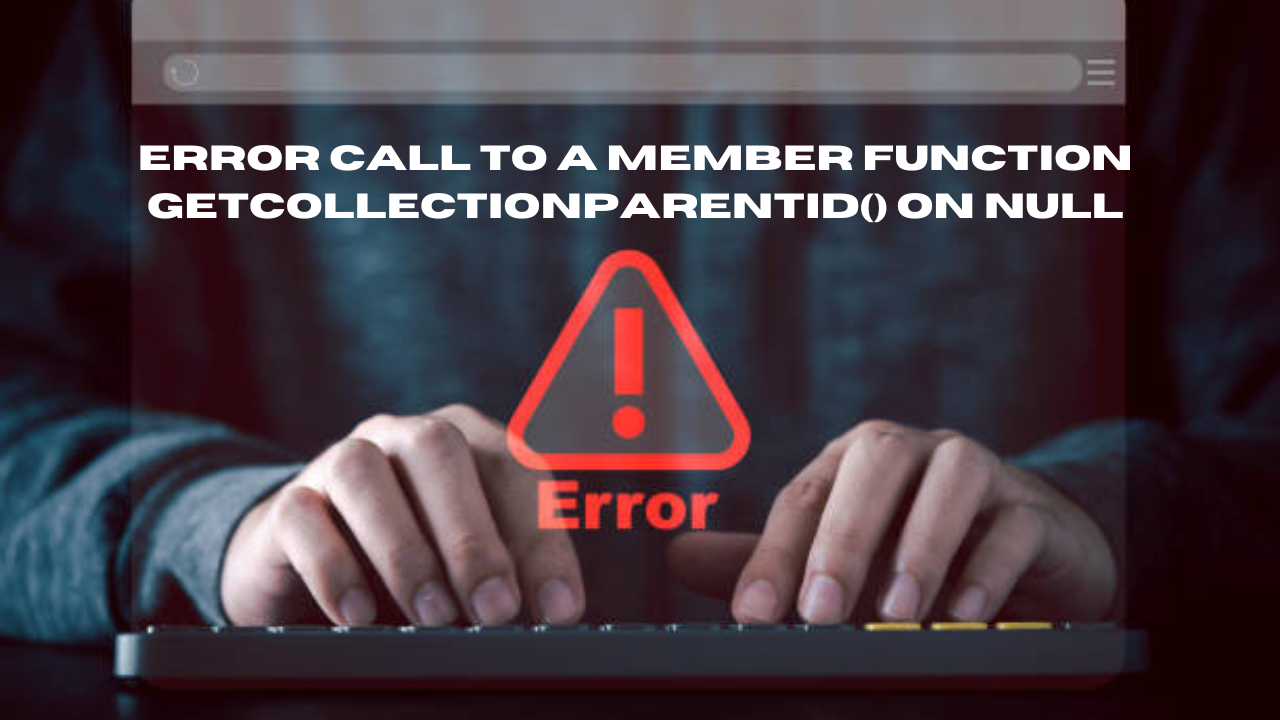In the programming world, encountering errors is an inevitable part of development. One particularly perplexing error is the “error call to a member function getCollectionParentId() on null.” This issue often leaves developers scratching their heads, but it can be resolved efficiently with the right approach. Let’s dive into the causes, implications, and solutions for this error.
Understanding the Error
The ” error call to a member function getCollectionParentId() on null” typically indicates a null object reference. In simpler terms, the code attempts to call the getCollectionParentId() method on an object that does not exist. Here are some common scenarios where this error might arise:
- Uninitialized Variables: The object you’re trying to access has not been correctly initialized.
- Database Issues: A function or query meant to retrieve the object from a database has returned null.
- Logical Errors: A condition in the code prevents the object from being assigned a value.
Analyzing the Causes
- Null Object Reference
The primary cause of this error is trying to invoke a method on a null object. For instance:
$product = getProductFromDatabase($productId);
$parentId = $product->getCollectionParentId();
In this example, if getProductFromDatabase() fails to find a product, it returns null. Attempting to call getCollectionParentId() on this null object triggers the error.
- Database Query Failures
If the object in question relies on a database query, the error might occur due to:
- Missing data in the database.
- Incorrect query parameters.
- Issues with the database connection.
- Improper Error Handling
Failing to check whether an object is null before invoking its methods is a common oversight. This lack of validation makes your code prone to errors in edge cases.

Solutions to the Error
- Validate the Object
Always verify that the object is not null before attempting to call its methods. A simple conditional check can prevent this error:
if ($product !== null) {
$parentId = $product->getCollectionParentId();
} else {
echo “Error: Product object is null.”;
}
- Debugging the Object’sObject’s Origin
Trace the origin of the object to identify why it is null. Here are some steps to follow:
- Inspect the Data Source: If the object comes from a database, check if the expected data exists.
- Review Function Logic: Ensure the function returning the object is correctly implemented.
- Log Debug Information: Logs capture variable states and identify potential issues.
- Handle Edge Cases
Account for scenarios where the object might not be available. For instance, if a product ID is invalid, provide an alternative flow:
$product = getProductFromDatabase($productId);
if ($product === null) {
// Log the error or return a default value
error_log(“Product not found for ID: $productId”);
return;
}
$parentId = $product->getCollectionParentId();
- Use Defensive Programming
Defensive programming practices can help mitigate such errors:
- Initialize Variables: Ensure variables are initialized with default values.
- Null Coalescing Operator: In PHP 7+, use the null coalescing operator to handle null values gracefully:
$parentId = $product->getCollectionParentId() ?? ‘default_parent_id’;
- Improve Database Queries
Enhance the reliability of your database queries by:
- Using prepared statements to prevent injection attacks.
- Ensuring proper indexing to speed up searches.
- Validating query parameters before execution.
Practical Example
Consider a PHP class managing products:
class Product {
private $parentId;
public function __construct($parentId) {
$this->parentId = $parentId;
}
public function getCollectionParentId() {
return $this->parentId;
}
}
function getProductFromDatabase($productId) {
// Simulate database query
if ($productId === 1) {
return new Product(10);
}
return null;
}
$product = getProductFromDatabase(2);
if ($product !== null) {
echo $product->getCollectionParentId();
} else {
echo “Error: Product not found.”;
}
In this code, if getProductFromDatabase() returns null, the conditional check gracefully handles the error.

Also Read: Kelly Bates Asks Supporters Not to Take Out Their Anger on NBC 10
Final Reviews
The ” error call to a member function getCollectionParentId() on null” is a common issue that can disrupt application functionality. You can prevent it by understanding its root causes and implementing robust error-handling techniques. Always validate objects, debug their origins, and handle edge cases to ensure your code is resilient and reliable. Addressing this error improves your application’s application’sapplication’s stability and enhances its overall user experience.



